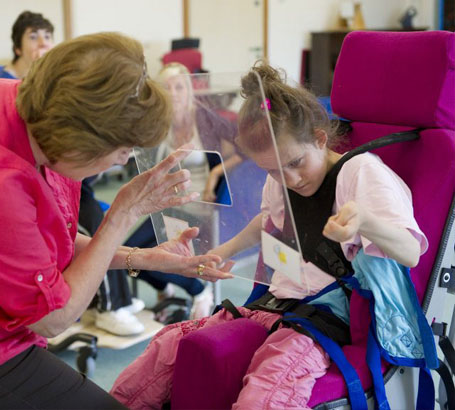
An emotionally literate teacher is more likely to be able to support students at risk of developing emotional problems.
They are also more likely to be effective teachers.
Within the psychological professions, there is a long history of those who support demanding patients receiving appropriate
supervision regularly. This not only protects their patients, but also protects them as individuals by ensuring their own
well-being and mental health.
Unfortunately, in schools, this kind of supervision is not available to staff. The focus is simply on assessing and supporting
the ways in which teachers perform in the classroom. Monitoring processes do not appear to provide the emotional support
that teachers genuinely need. Given the emotional strains of the classroom, this would seem to be a genuine failure and one
that needs to be addressed. of pupils in school.

School leaders should focus on how well-balanced and well-adjusted staff are. They need to ask themselves about their
teachers':
- Attitude to development and learning and whether this is positive.
- Their capacity to self-organise and integrate work and life: i.e., maintain a work-life balance.
- The ability to make sense of life and feel that there is a genuine purpose to it.
- The desire to become a fuller and more rounded person.
- The ability to recognise, express and understand emotions in both themselves and others.
- The ability to empathise with others both on the staff team and within the student community.
- The teacher's energy levels and resistance to illness.

How do you feel in terms of your well-being (physical, emotional, mental)?
How are you getting on in terms of organising your time and balancing priorities?
How would you describe your work-life balance? Do you need to think about adjusting it in any way?
Do you find time to think about and develop a purpose to what you’re doing both in and out of school?
What do you think you could be doing differently to foster and maintain your sense of well-being?
Can you think of anything that you could change? Is there anything that you might want to change in the future?
How could I, as a manager, help and support you in this?
When shall we review this situation? Let's set a date.
![Teachers meet round desk]](img/m12p060d/MSQU9189.jpg)
Teacher support groups are an effective means of providing staff with peer support. Pupils with difficulties in class
(either emotional or learning) can be discussed and new ways of coping explored. This supports the development of genuine
empathy and reduces levels of stress.
The process is adapted from Newton (1995)who initially developed this solution-focused framework to enable emotionally literate
working. The idea of such a group is for staff to identify their own solutions, reflect on their interventions and explore
new processes and strategies to meet students’ needs more effectively.
In many schools, the educational, clinical psychologist or counsellor facilitates this
- Welcome members.
- Recap previous session.
- New issues.
- Case presentation.
- Use of metaphors and analogy to describe the teacher’s relationship to the student under discussion.
- Impact of previous relationships/spillages highlighted. This also staff to explore transference and emotional resources. For example, is any particular role being transferred on to the teachers by the pupil who is having difficulties, for example, the father or mother? Is there any other emotional material that is being projected and does this pupil attempt to show anger to the teacher that they’ve been unable to show to a parent or carer for various reasons etc.

- Counter-transference tactics explored: for example, what is the teacher doing to avoid transference?
- What alternative strategies or interventions are available?

- Define your policy and actual practice in supporting staff well-being. Where and how is this recorded and evaluated?
- Do you need to seek further contributions from the whole staff to identify what works and what needs to be developed? How can you best make use of external agency and appropriate clinical support to support staff?